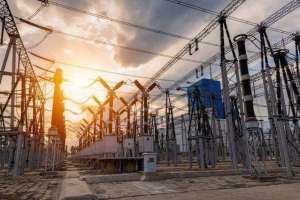Reporter: In February 2015, you sent a petition to the Commission for the Investigation of Abuse, Fighting Corruption and Petitions of the Romanian Senate and Chamber of Deputies in which you reported "the superficial and disinterested manner" in which the SIE commission did its job, following an address submitted by Transcarpat Sportours International concerning "abusive and illegal actions of employees of the Romanian Intelligence Service (SIE), which harmed the legitimate commercial interests of the undersigned, (ed. note: Transcarpat Sportours International), affected the mechanisms of the free market, caused the spending of public funds in an inefficient manner and in violation of the public procurement legislation and led to the acquisition of products at inflated prices and from sources of dubious creditworthiness".
In the petition you also complained about "the superficial and disinterested manner in which the SIE commission is exercising its duties", in the particular case you reported.
What do you have to say about the answers you received so far from the Parliamentary commissions?
Dinu Solojan: So far, I have only received responses from the Abuse Commission of the Senate, led by Mr. Gheorghe Flutur. But the commission has avoided doing its job and reviewing the petition, saying that it did not have the legal means/leverage to determine the SIE audit commission to carry out its role.
I have been waiting for the response of the Abuse Commission in the Chamber of Deputies, which seems more willing to actually practice the notion of parliamentary control of the activity of the intelligence services, considering that it has brought our petition up for discussion in the Permanent Office.
Reporter: Why would SIE employees harm your commercial interests?
Dinu Solojan: There are multiple aspects that stem from the structure of the crony system. The SIE is not the only institution that behaves like that, but this has given an external dimension to the system.
I did not accept breaking the law in doing business, I did not have any sympathies nor aversions against institutions or people from these institutions. I have thought that public funds have to be spent cautiously and on quality products, that is why I have strived to persuade the most reputed companies in the sector to show interest in the Romanian market. Other companies have only been interested in making a profit and the system has accepted products of questionable quality, for many years.
I've never accepted for the awarding procedures to be "rigged" through the intervention of the evaluation commissions, which, in many cases, evaluate unfairly, which thus creates the possibility for them to favor some participants. Unfortunately, there are some unbelievable examples right now.
In the beginning of my activity in this sector, and for a long time afterwards, I've often been asked by various people from every institution I've concluded contracts with "what was my past within the system", as a tacit confirmation that access to commercial collaboration with "the institutions in the system" is somehow reserved to the "select people".
I think that the fact that I was not part of "the system" allowed these abuses against my activity to happen. Unfortunately, my years of activity have proved to me the validity of the proverb "Crows will not pick out crows' eyes".
Going back to the question: at a certain time, I was forced to report to the Logistics Department of the SIE certain violations of the law, from which point on I was never invited to participate in acquisition procedures. It is a well-known fact that public funds are spent in an outrageously wasteful manner, as some contracts are awarded based on sympathies, not based on performance. The lack of actual control over the activity of the intelligence services has caused them to act as they please, instead of in compliance with the law.
Reporter: In the petition you state that between 2006-2009, you had contracts with the SIE for several categories of products, which were significant in terms of complexity. You are also saying that all those contracts were adequately honored.
Did you receive any official complaint from the SIE about these contracts? Why do you think that these issues that you encountered in the calls for tenders started in 2009?
Dinu Solojan: There was never any complaint about the progress of the contracts. On the other hand, starting with 2009, personal interests of the management of the service in connection to the money that was being maneuvered transparently through the public procurements have begun making their presence felt within the SIE. Also, 2009 was the year when my company won several significantly complex contracts from the other Romanian armed institutions, conducted through competitive and transparent awarding procedures, and certain competitors in the market saw that the "small arrangements" they had were no longer yielding results, which is why I think they expressed their discontent in certain circles, in other words where they had buddies, and their "friends" felt compelled to do something, meaning to vitiate the procurement procedures through actions directed against my company and against the ones we represent in Romania.
Reporter: What is the value of the contracts that you have conducted so far for the Romanian armed institutions? What products did you equip them with?
Dinu Solojan: The amount of the contracts is hard to specify and it is not relevant, considering the various types of contracts that we have performed. Sadly, the Romanian market is a very small one. The real needs and the market potential would be sufficiently interesting from an economic point of view for any company in this line of business, whether Romanian or foreign, but the funds and the budgets of all the institutions are inefficiently and unevenly distributed, as part of the procurement takes place without the true application of the legal provisions in the field.
My company specializes in the essential elements of equipment for armed combat - semiautomatic pistols, (sub-machine gun), assault rifles and sniper systems - and in the appropriate ammunition, optical and special optical-electronic equipment and in the training systems. We work with some of the most prestigious manufacturers in the world in all of these market segments and we have always promoted the high quality of products and services.
Reporter: Do you have proof that "The Logistics division of the SIE has advised the construction firm to look for an alternative source for the systems in question and to drop the collaboration with the undersigned (ed. note: Transcarpat Sportours)"?
Or are you just relying on the statements of the officials of the construction firm? Can the "rules of the game" after the organization of a call for tenders (I understand that the construction company in question was declared the winner, and you were the subcontractors)?
Dinu Solojan: I have already had phone discussions with several employees of the logistics department, and they have confirmed to me that this decision was made, without explaining why. Also, I was unable to secure an official meeting with them, because they told that they did not have the permission to grant me a hearing.
Obviously, the rules of the game can't be changed during or after the unfolding of a procurement acquisition, but who is going to check on the secret services?
But it needs to be mentioned, concerning the range of products which my company is selling, the SIE is an important customer, but the amounts of the contracts aren't big. But it wasn't the manner in which they acted that was the most annoying: getting in touch with my traditional trading partners and requiring them not to work with me if they wanted to have them as customers, in other words a blatant violation of the legal limits of the activity of the SIE, represents an intervention on the free market that is not allowed. This outrageous behavior is what led to me to notify the Audit commission.
Sure, for me there is also a positive side of these unconstitutional actions of the SIE, namely the fact that it has implicitly confirmed that the products promoted by my company serve the Service's operational needs the best. The fact that, for reasons that are absolutely out of the ordinary, they don't want me to make money from these transactions does nothing but endanger their position.
What is regrettable is that the SRI has also abandoned the path of legality and it has engaged in illegalities that seem to surpass those of the SIE.
Reporter: Did SIE officials ever ask you for bribes in the form of money or goods?
Dinu Solojan: Not directly, they knew my activity based on compliance with the law, but I can say that I have been tested and evaluated on my "willingness" to let myself get involved in this kind of practices.
Reporter: Did you sue the SIE or SIE officers for having harmed your company's perception with your partners?
Dinu Solojan: Not yet. Our strategy for remedying this illegal situation comprises several avenues of action stipulated in the legislation, ordered according to procedures and priorities.
I gave those in question every possible opportunity to remedy those abusive actions by calling for a dialogue, by demonstrating a cooperative attitude- even though I wasn't the one who had broken the law and morality -, but the remedial means that I applied did not yield the concrete result.
What is interesting is that the last official communication coming from the SIE, even though it did not approach the issue of the avenues of attack, contains a phrase in which I am explained the fact that I would not be able to sue them, which represents an attempt to discourage resorting to the courts, but also an expression of some fears.
Reporter: Did you ask for an explanation from the SIE concerning the statements of the agents concerning the discrediting of your company before its partners?
Dinu Solojan: Yes, and in response I received the standard phrase used by public institutions in Romania when their guilt is obvious: "we can neither confirm nor deny".
As a result of my insistence and of the fact that business partners have confirmed the correspondence I had with the SIE, which featured the names and contact information of their intelligence officers, the response of the institution was that "perhaps they are not real". The essential thing is that the SIE knows that everything is true.
Reporter: How did your foreign partners react to this kind of accusations? Did they terminate their cooperation with you or not?
Dinu Solojan: Over the last six years when these unconstitutional and anti-Romanian actions have been going on, several foreign commercial partners have caved in to the pressure and have decided to suspend their relations with me, some of them temporarily, while others went back on their decision. It is easy to understand that there have been immediate and long term losses, lawsuits, etc.
I think that those commercial partners dropping their partnerships with me was more due to the imposing name of the institution, as companies were approached on a level that gave the impression of legality. Also, because of an erroneous interpretation of the situation in Romania, where they thought a centralized market for the acquisition of military equipment existed, thus, they allowed themselves to be misled by a possible higher presence in the market through a various government structure.
Most of them were fooled, because the SIE didn't buy from them, and we terminated our cooperation with them as well.
In a niche and very specialized area such as this one, where the reliability and eligibility of trade partners are very important elements, interventions of that nature of an institution that carries the emblem of the country of residence of the partner determine a confusion among foreign companies, that doesn't take long to harm Romania, ruining the credibility of the notion of free market and democratic economy.
However, most of my commercial partners did not even remotely consider the idea of dropping their commercial relations with me, as a result of the direct intervention of the SIE, as my company's portfolio was too solid.
Reporter: Is Transcarpat Sportours International an approved supplier in the Romanian military system?
Dinu Solojan: I can say that Transcarpat is the private company that has the largest number of legal licenses for trading weapons and ammunitions in Romania, which once again creates jealousy. Both the company in itself, as well as the staff, hold all the authorizations and certifications that exist in Romania pertaining to trading weapons and ammunitions.
A totally incomprehensible matter in the activity of the SIE, and more recently, of the SRI, is that they disregard the law and the demands for the authorizations needed for the full legal compliance of these operations. Even though it takes specific authorizations clearly mentioned in the law, the services have exercised pressure on the authorities habilitated to issue those kinds of authorizations, so that they show tolerance and inaction when it comes to the auditing and the holding responsible for the criminal actions represented by the unauthorized trading of weapons and ammunition.
So, in order to favor certain companies, some of the guardians of legality in Romania - let's not forget that unlawful or forbidden operations can represent threats to the national security - disregard the provisions of the law.
Reporter: Do you have any evidence that the SIE is depositing money for long periods of time in the accounts of foreign private companies? Do you know if there are any other such companies, with the exception of the American one that you mention in the complaint?
Dinu Solojan: I have no evidence concerning other companies, but there is evidence that this may be a method used with other companies as well.
Reporter: In the complaint you also say: "The pricing negotiation with the undersigned was done in an ostentatious manner, even with shows of force from the employees of the SIE, which is something that would not work in the relationship with a foreign company". What does "shows of force from the SIE employees" actually mean?
Dinu Solojan: A very aggressive manner of negotiation, lacking any concrete arguments - the price level of the product, the cost of the special shipping -, based heavily on responses such as "we know the price of the product is lower", "you have to accept the level of profit that we tell you to" etc.
Reporter: You say, in your petition, that the SIE officials have reported that they would procure accessories "from alternative sources". According to the document they sent, you claim that "this expression means, most likely, from sources that are unauthorized to re-export them, in blatant violation of the regimes of product control. It is incredible how this institution accepts the violation of the international and national laws, exposing Romania to the risk of international sanctions".
Did you notify other entities of the Romanian government, namely the Supreme National Defense Council, or European institutions about these accusations? If yes, what was the answer?
Dinu Solojan: As for unauthorized re-exports, the most effective notifications are those files with the authorities in the products' countries of origins. They are effective, because they ruin the credibility of the SIE and they require the Romanian state, which allows such practices, to take action for their remediation.
Through the foreign partners, who have become upset at the insistences of the SIE and at its approach that goes against the international commercial practices, that kind of complaints exists.
Reporter: Your accusations concerning the involvement of the SIE in "directing the trade activities of privately owned Romanian and foreign legal entities" are extremely serious. Why would the SIE have an interest in having other companies making profits and based on what criteria does it select them?
Dinu Solojan: I don't see any other explanations aside from the personal interests of the management of the SIE and of some obedient employees. Also, the wish to exercise control of the market, again due to occult reasons. It is an attitude directed against Romanian capital and against the quality of the act of trading military products. The SIE ought to be concerned with the quality of the products and with getting fair prices, through transparent competition, not with who sells them. The SIE selects its suppliers based on personal friendships criteria, rather than on criteria of economic performance. It is willing to spend uncontrollable amounts of money, which affect the real acquisition price of the product and generates artificial accounting aspects.
Reporter: What made you suspect that the SIE is aiming jabs at the other intelligence services, through your company?
Dinu Solojan: Not just at the other services, but at other institutions as well.
The essential problem is that intelligence services view themselves as the absolute best. Of course, they are elites, but when it comes to intelligence gathering, not necessarily to armed interventions. The natural tendency in gathering intelligence is for it to become increasingly reliant on technologies and less on the human factor. On the other hand, armed confrontation has remained a matter of human factor, accompanied by the quality of the weapons used. Thus, it can't be said that a fighter in the intelligence services is better prepared then a fighter in the strike teams of the police or the gendarmerie or in the special operations forces of the army, even though the services are trying to promote that notion. We need to take into consideration how many high-risk missions the intervention units of the police and gendarmerie have versus how many those in the services have. There are very recent specialized publications that confirm the things stated above.
Seeing that other armed structures of the Romanian state were buying latest generation armament and ammunition with amazing performance and that in legal, competition-based and transparent procedures, our company has the biggest odds of winning these contracts, the services have felt hurt in their alleged superiority over the police, gendarmerie or the army. They have intervened for some contracts to be delayed, by delaying the issuing by the competent institution of the licenses for the importing of military products.
What is bad is the fact that entities of the Romanian state create difficulties for other entities of the Romanian state, in an absurd fight for the supremacy of the institutional influence, which is often exercised in an occult manner. All the while, claiming they are defending the national interest.
Reporter: What chances of winning this fight do you think you have, as the activities of the SIE are secret, and they can use this as a justification not to respond?
Dinu Solojan: According to the law, it's only the operative intelligence activities are secret. The activities of ammunition and weapons acquisitions are not secret, according to the European acquis, which the services claim they comply with. Moreover, "classifying" an activity that has taken place and was not secret at the time amounts to acknowledging the institution is guilty and they want to avoid having it discovered. My evidence comes from the correspondence exchanged with the foreign companies, which was not and can not be classified, because the acquisitions made by the SIE have not been classified.
Reporter: Did you dispute the fine levied by the Competition Council?
Dinu Solojan: That decision was challenged in court immediately after it was announced, meaning in December 2013. The investigation lasted four years, during which time not one piece of evidence was produced to support the accusations. Essentially, the fine was predefined the day when the investigation of the Competition Council was announced. There are several relevant questions which concern the abusive actions committed by the Competition Council in the investigation and in the decision, including the manner in which the enacting of the fine was imposed, which are now clearly coming out. There is new data, which shows that this was done upon an order from on high, in order to protect the interests of some rival firms, which had entered anticompetitive agreements which we proved and which have never been investigated for that to this day.
Against my company illegal actions could be taken, in the context of the alleged rule of the law.
Reporter: Thank you!
























































